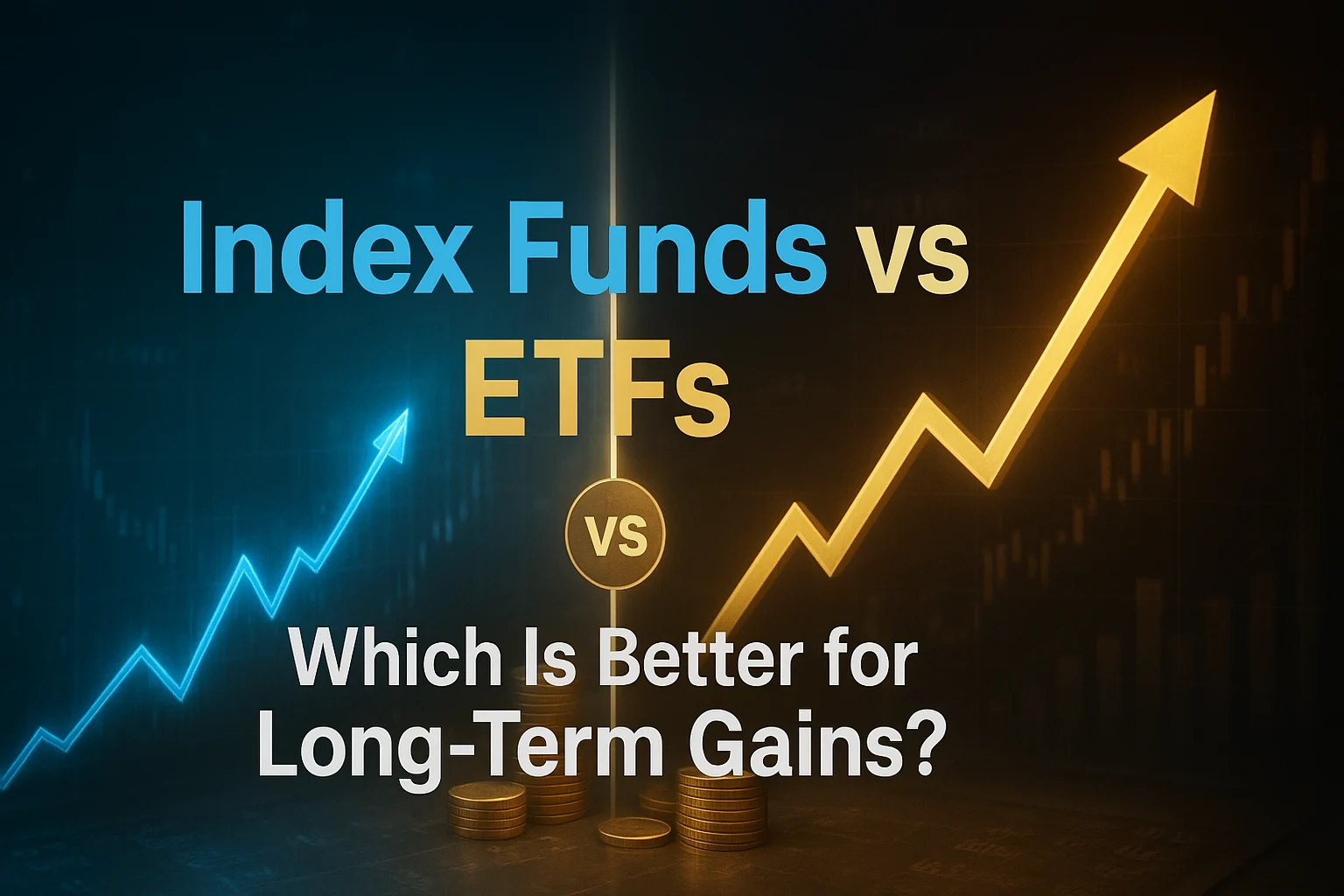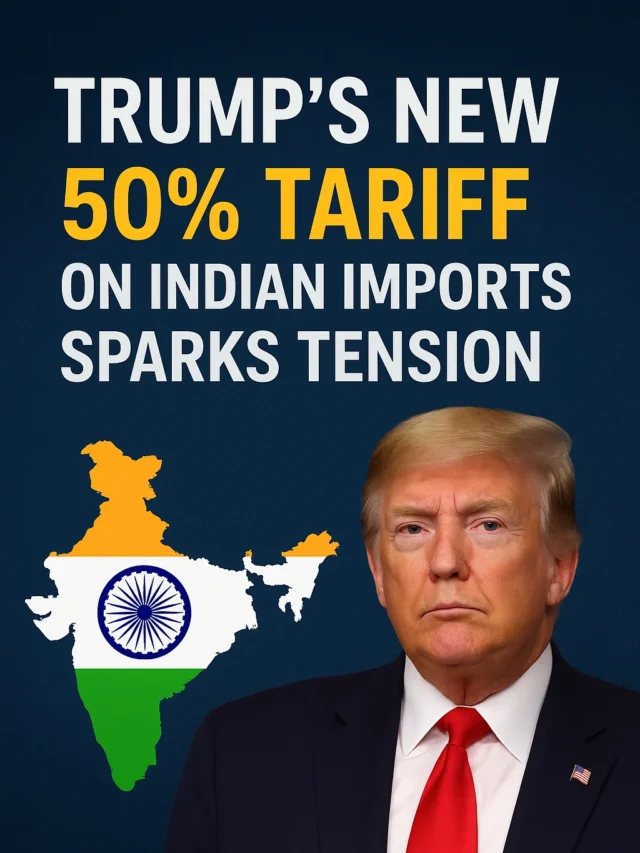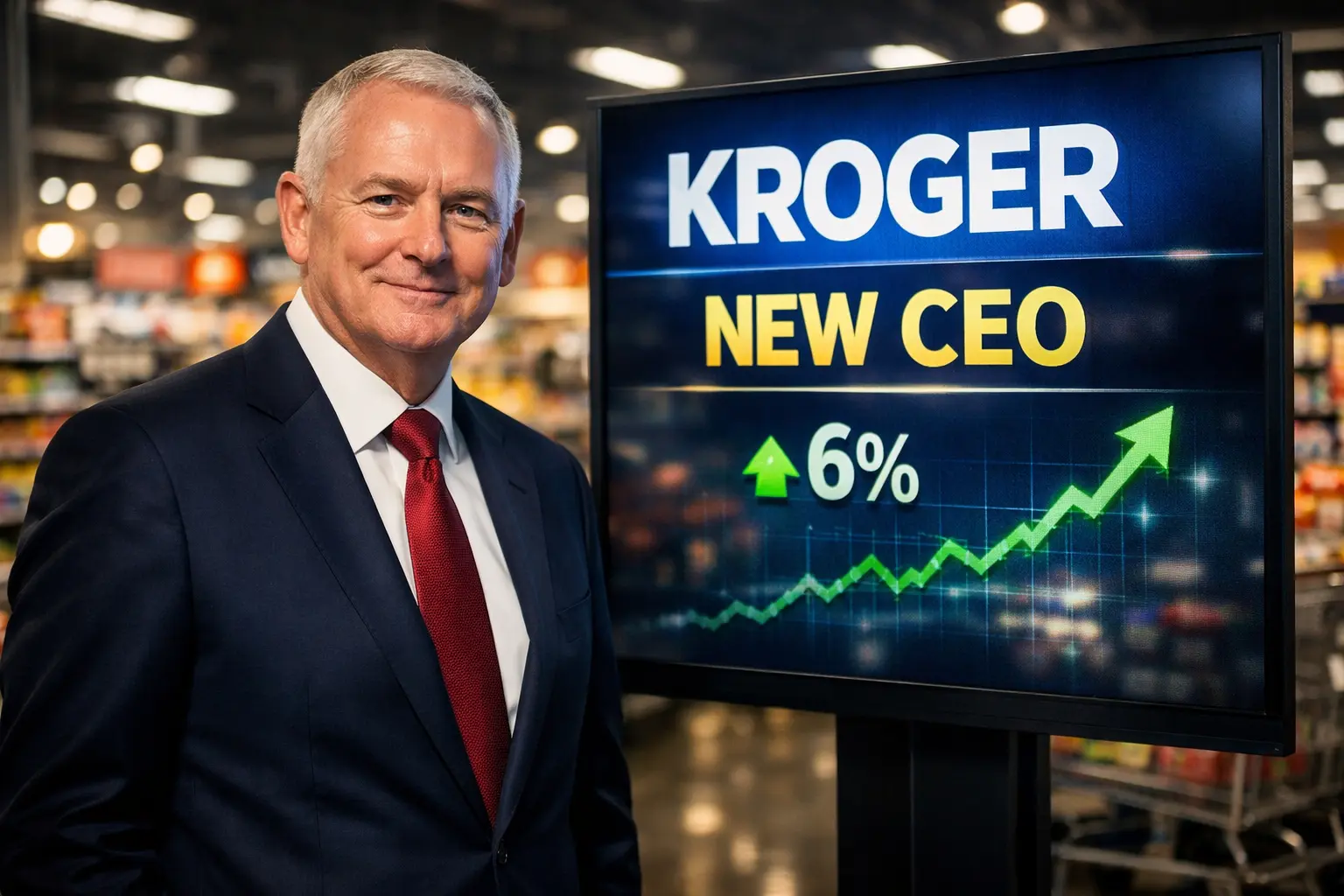If you’re considering investing for the long term, you’ve likely heard of index funds vs ETFs. Both are very popular investment methods, especially in the US. But many investors are confused about which is better: index funds or ETFs.
Both are low-cost options that track market indexes, but there are some key differences in how they work that are important to understand.
First, let’s understand what they are.
Index funds are funds that follow a specific market index, such as the S&P 500 or Nasdaq 100. This means that the companies in that index are represented in the fund in roughly the same proportion. This means you get returns that match the market’s performance, not higher or lower.
Exchange-Traded Funds (ETFs) perform much the same function, but with one difference: ETFs trade like stocks on the stock market. This means you can buy or sell them at any time of the day, whereas index funds can only be bought or sold at the end of the day (at the NAV price). This is a major difference, which is seen as the difference between index funds and ETFs.
Index-Funds vs ETFs: Key Differences Explained
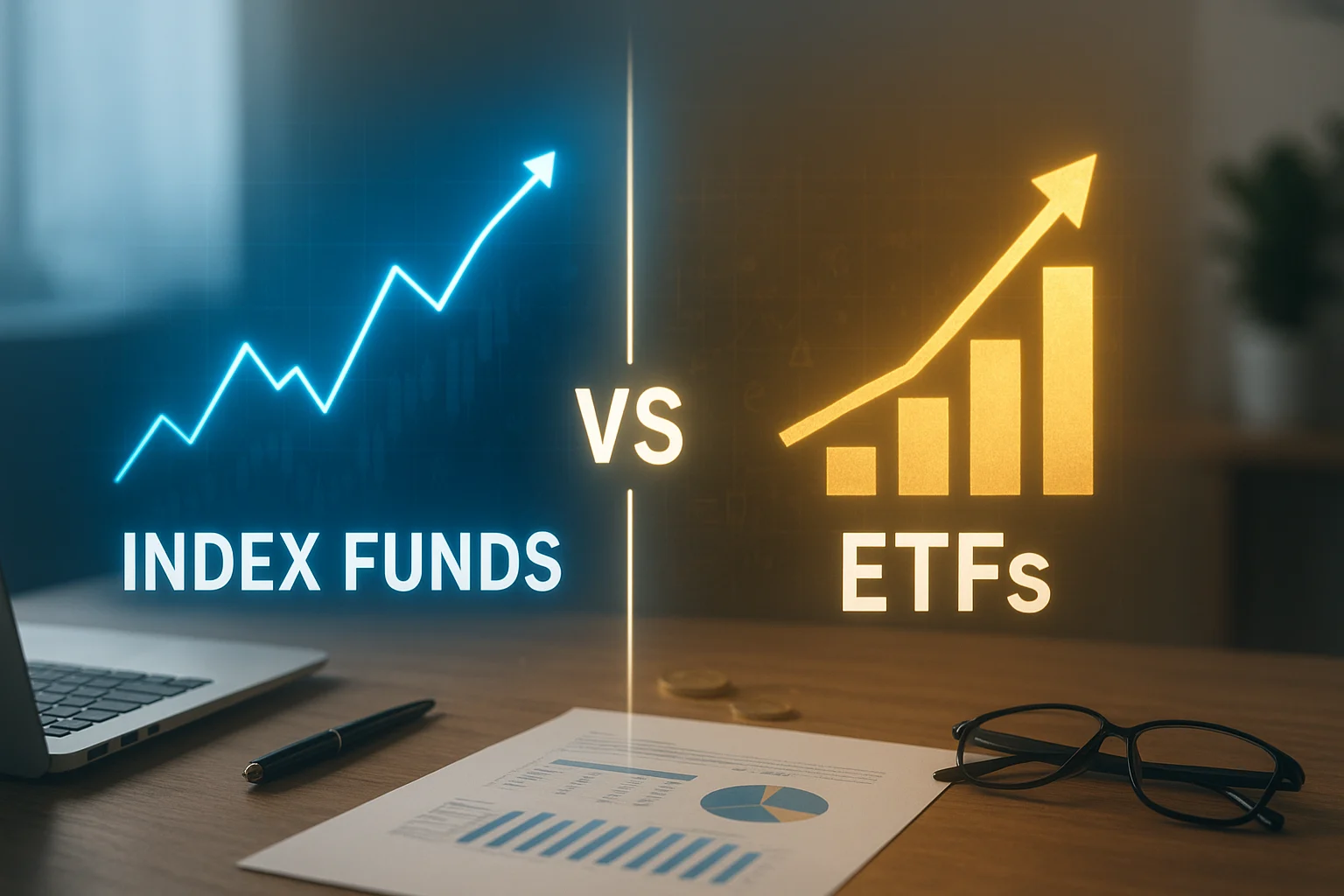
- Index Funds: Follow a specific market index like S&P 500 or Nasdaq 100.
- Hold the same companies as the chosen index in similar proportions.
- Returns match the overall market performance — not higher or lower.
- ETFs (Exchange-Traded Funds): Work similarly to index-funds but trade like stocks.
- Can be bought or sold anytime during market hours, unlike index-funds.
- Index funds can only be traded once per day at their NAV (Net Asset Value).
- This trading flexibility is the main difference between ETFs and index-funds.
The question now arises: which mutual funds are the most sensible option?
Mutual funds often involve active management, meaning a fund manager decides which stocks to buy and sell. Index funds and ETFs, on the other hand, don’t have this—they are “passive investing” options that work best for most people in the long run because they have low fees and offer steady growth.
Comparing index funds and ETFs, both have the same objective—to achieve average market returns. However, the approach is slightly different.
Index funds are convenient for investors who want to automatically invest a certain amount each month, such as in a 401(k) or IRA. ETFs, on the other hand, are better suited for those who prefer to control their investments and buy and sell during the day’s trading hours.
Index Funds vs ETFs: Investment Approach
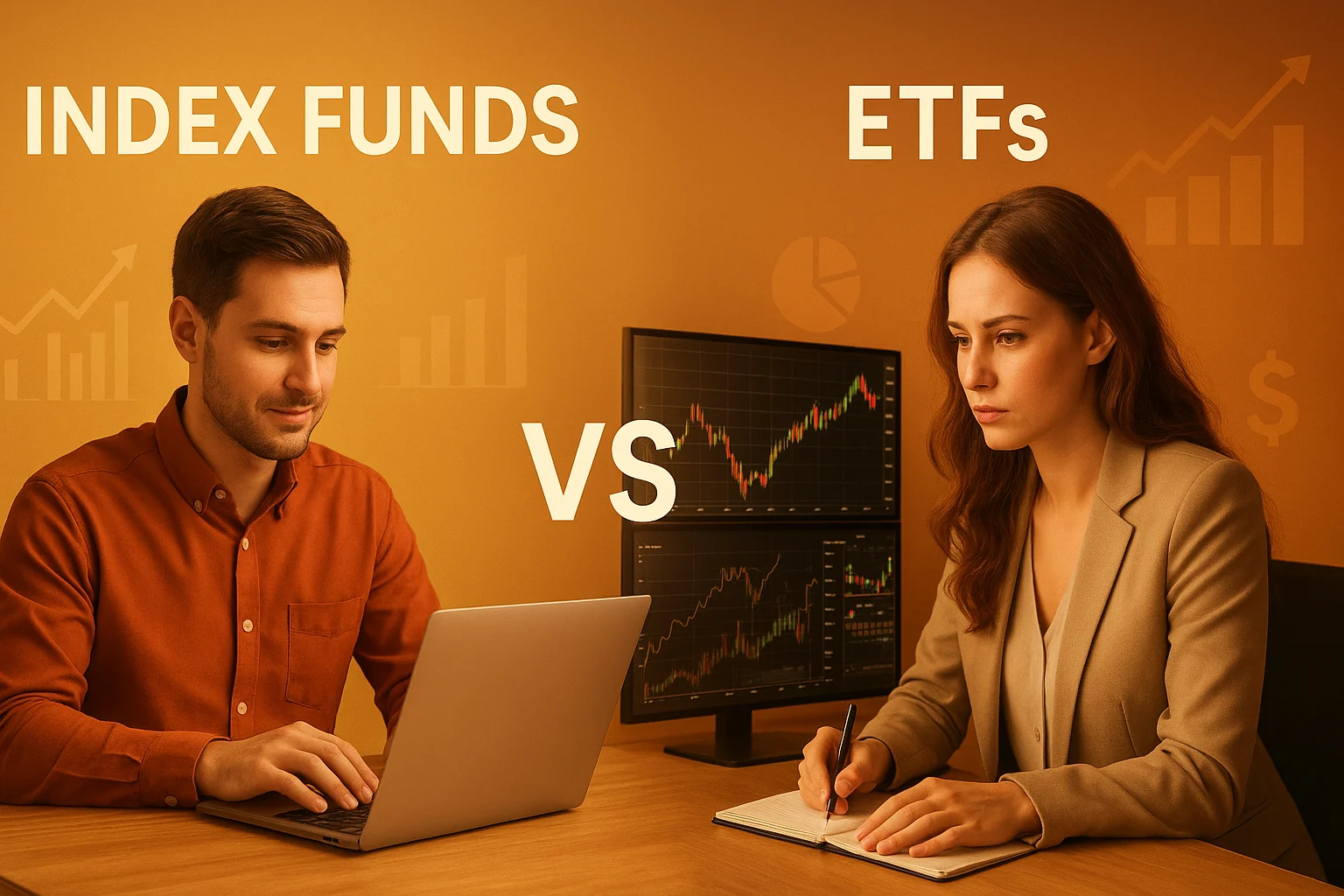
- Both Index Funds and ETFs aim to achieve average market returns.
- Their investment approach differs slightly.
- Index Funds: Convenient for investors who want to automatically invest a fixed amount each month.
- Commonly used in long-term plans like 401(k) or IRA accounts.
- ETFs: Suited for investors who prefer to control their investments.
- ETFs allow buying and selling during market hours.
While both are cost-effective in terms of expenses, ETFs often have a lower expense ratio and are considered more tax-efficient. This is why many investors in the US are now turning to ETFs.
However, for those who prefer “set and forget” investing, index funds are easier and more reliable.
From a long-term investing perspective, the difference between index funds and ETFs isn’t that significant. Both are good if your goal is consistent and disciplined investing. The key isn’t which fund you choose—it’s how long you stay invested and how well you can withstand market fluctuations without panicking.
Many US investors choose one option over another without understanding the differences between index funds and ETFs, and mutual funds, and later regret it. Therefore, it’s best to understand your needs first—
If you want to invest a fixed amount each month and stay out of the daily market fluctuations, an index fund is the right choice.
If you need control over your buying and selling and are more focused on tax savings, an ETF is a good option.
In the end, there’s no “best” comparison between index funds and ETFs. Both are valid; it just depends on your investing style to determine which one suits you.
Most long-term investors use a little bit of both to maintain a balanced portfolio—some money in index funds and some in ETFs.
So, if your goal is to build stable wealth over the long term, whether you choose an index fund or an ETF doesn’t matter much. What matters most is consistent investing, staying on schedule, and keeping expenses low.
Ultimately, the winner in investing is the one who doesn’t try to beat the market but rather moves steadily with it.
Also read:
What Are the Keys to Building Wealth Through Investments? (A Complete Guide for Smart Investors)
US vs China: Who Will Dominate the Global Economy by 2030?
ASML Stock Forecast 2025: Is the AI Chip Boom Just Getting Started?


